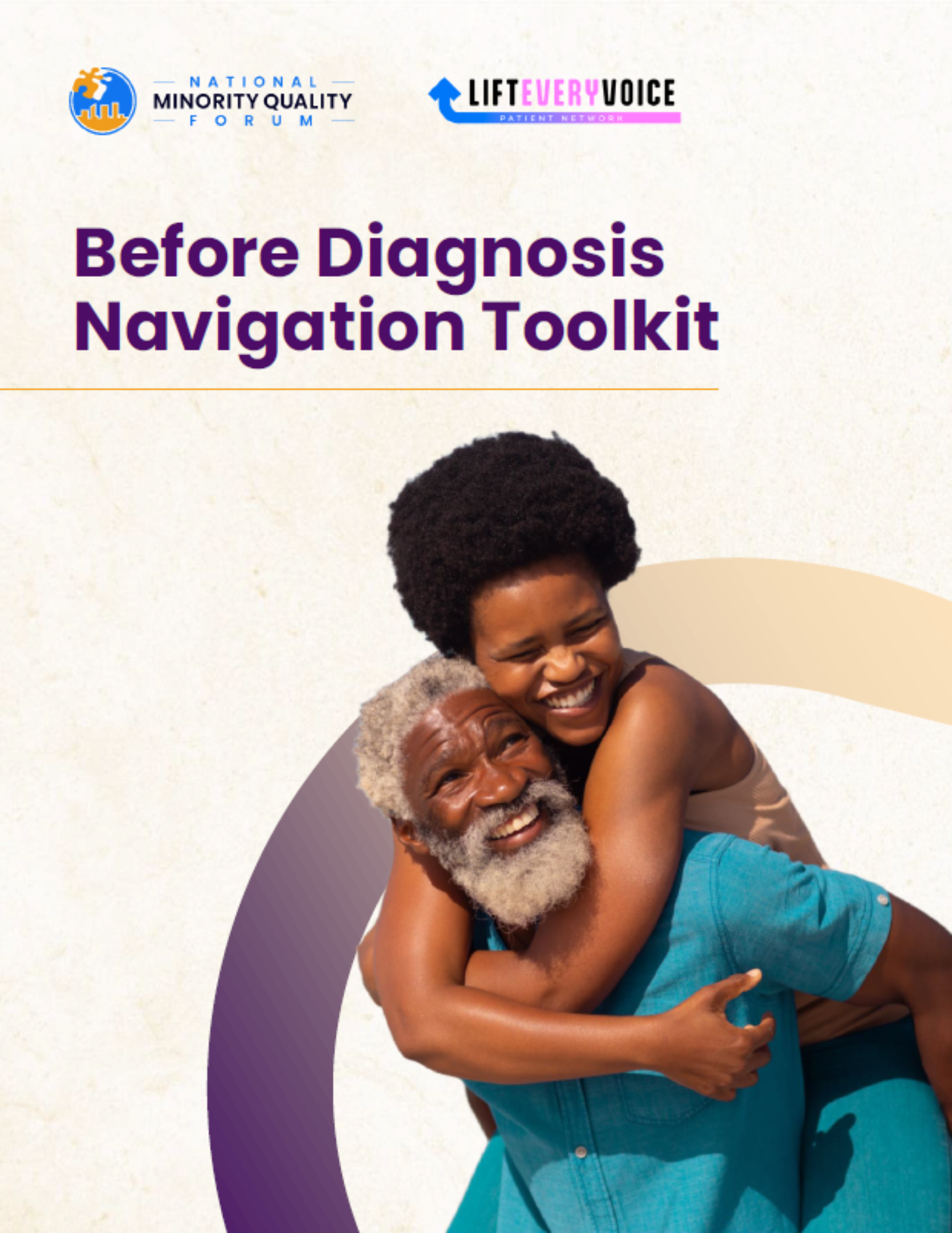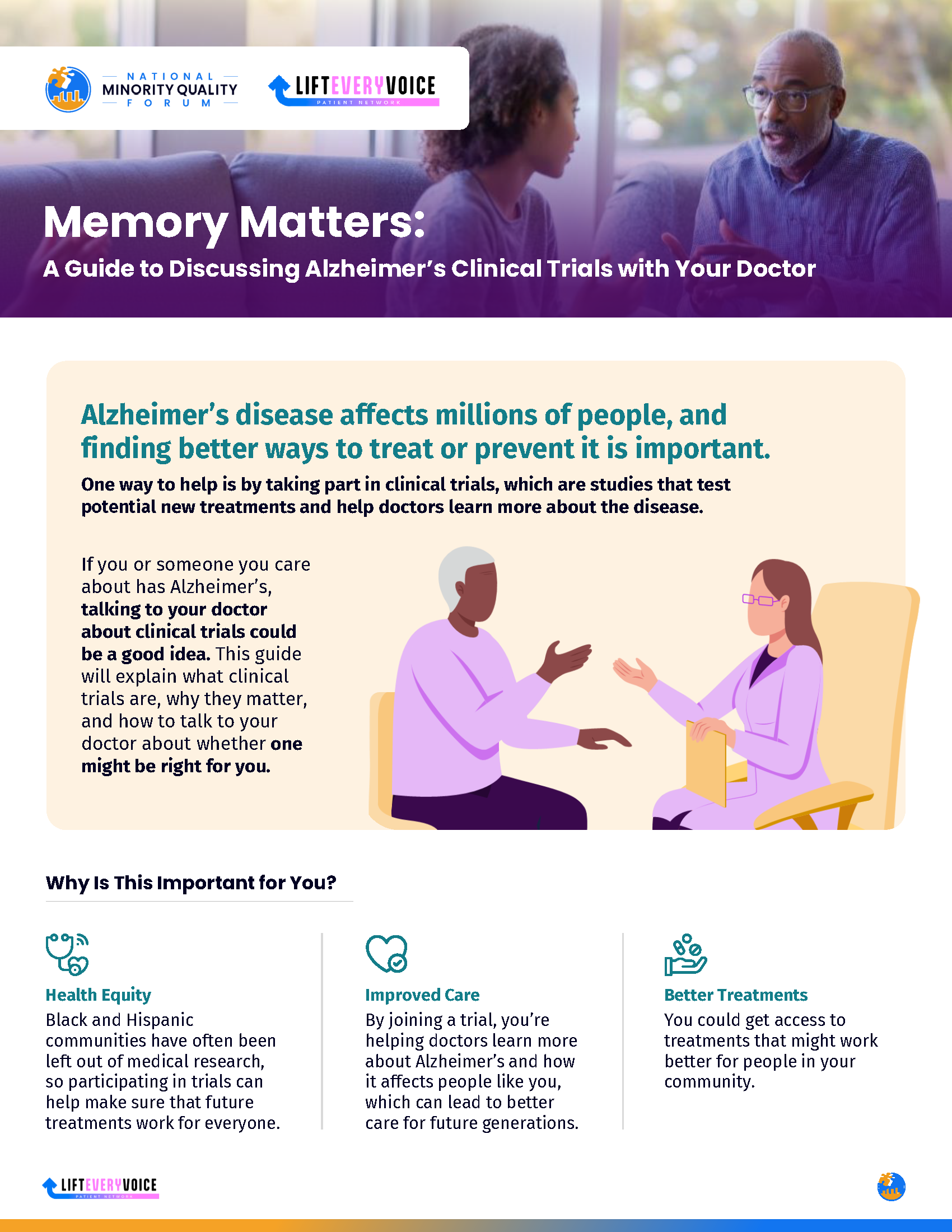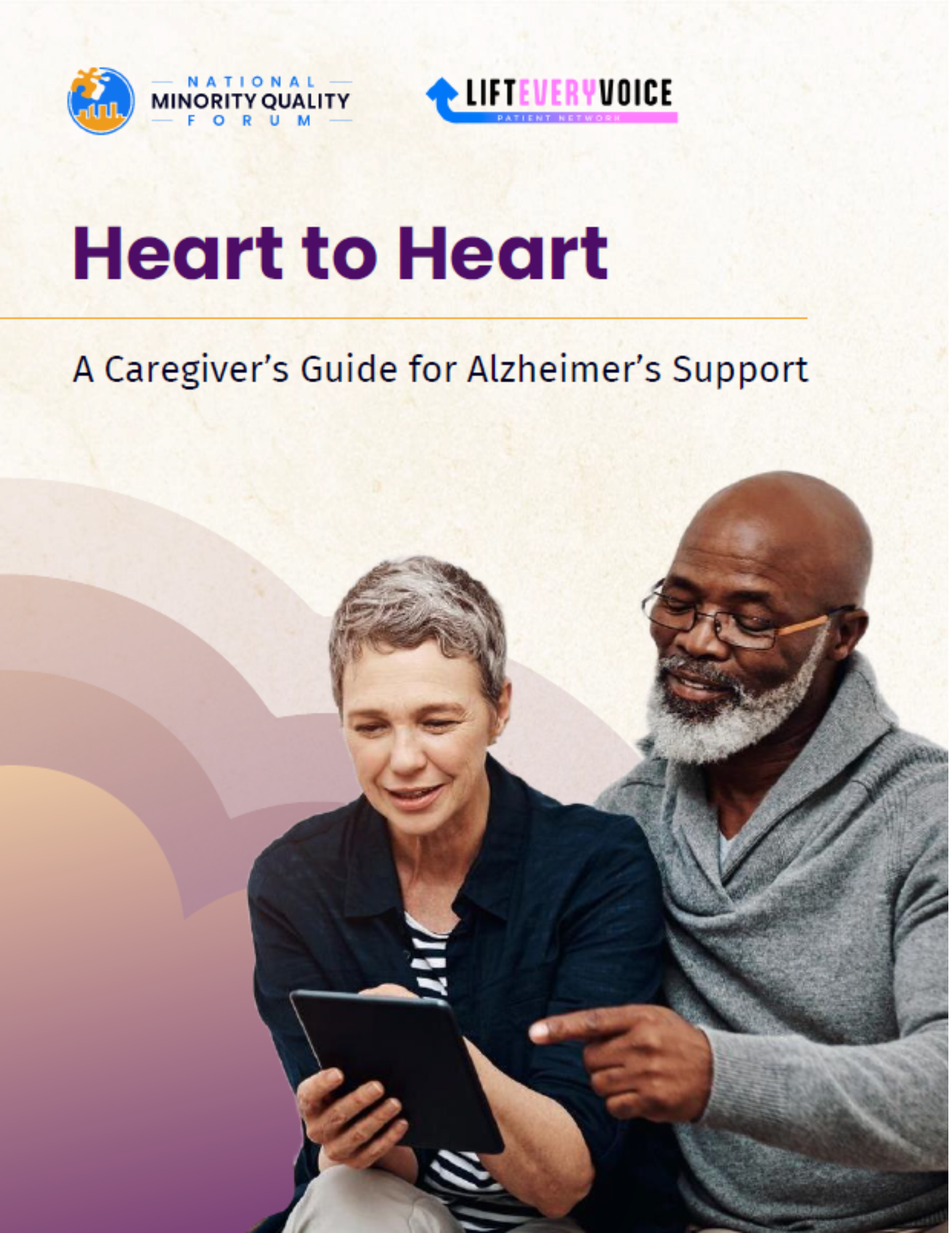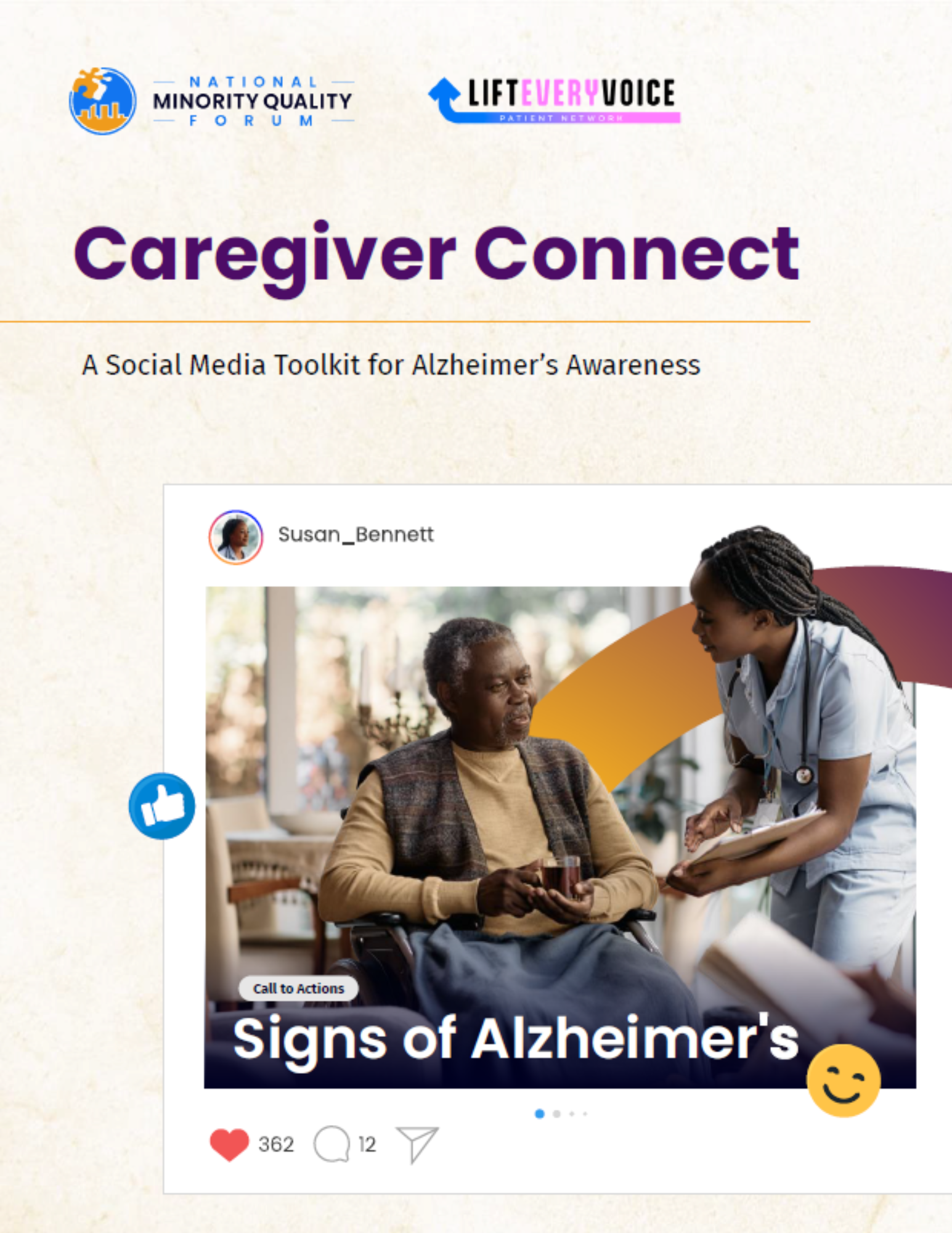It's time for a heart to heart...
Let's Talk About
Alzheimer's in Our Communities
Share Your Story with Us!
Whether you're a caregiver, a friend, or family member of someone with Alzheimer's, your words can inspire, educate, and empower others navigating similar health challenges.
In the U.S., nearly 21% of Black/African American people over the age of 70 and nearly 13% of Hispanic people over the age of 65 have Alzheimer’s. Because of socioeconomic disparities, cultural factors, and healthcare access, these groups often face delays in getting diagnosed and experience more severe symptoms.
The National Minority Quality Forum has developed culturally tailored patient empowerment guides to educate and help patients confidently take control of their Alzheimer's journey.

Before Diagnosis Navigation Toolkit
The Before Diagnosis Navigation Toolkit is a culturally tailored resource designed to help Black and Hispanic families understand Alzheimer’s disease and what steps to take before getting diagnosed. It offers clear guidance on recognizing early symptoms, tracking changes, preparing for doctor visits, and starting important conversations with loved ones. By addressing stigma, delayed diagnosis, and unequal access to care, the guide empowers communities to take early, informed action and advocate for culturally responsive support.
Memory Matters: A Guide to Discussing Alzheimer's Clinical Trials with Your Doctor
Memory Matters is a clear, community-centered guide that helps individuals talk to their doctors about Alzheimer’s clinical trials. It explains what clinical trials are, why they’re important for improving care, and how participation can help ensure treatments work for everyone. With suggested questions and practical tips, the guide empowers patients and families to make informed decisions and advocate for equitable representation in Alzheimer’s research.


Heart to Heart: A Caregiver's Guide for Alzheimer's Support
Heart to Heart: A Caregiver’s Guide for Alzheimer’s Support aims to help families navigate caregiving, advocate for loved ones, and explore Alzheimer’s treatment options. It provides practical tips for starting family conversations, managing caregiving responsibilities, and finding clinical trials that respect cultural values and language needs. The guide also addresses common concerns like stigma, mistrust, and access to care—empowering caregivers with knowledge, compassion, and support every step of the way.
Caregiver Connect: A Social Media Toolkit for Alzheimer’s Awareness
Caregiver Connect: A Social Media Toolkit for Alzheimer’s Awareness equips caregivers and advocates with ready-to-use posts and graphics to raise awareness about the early signs of Alzheimer’s. Focused on education and community support, the toolkit encourages early detection and emphasizes the importance of speaking up when changes in memory or behavior are noticed. Designed for platforms like Facebook, Instagram, and Twitter, it helps families share vital information and foster conversations that can lead to timely care and support.

"I choose the best traits that [my father] has to help him when he's confused." — Silvana Bojana, Caregiver
Are you an Alzheimer's patient or caregiver and want to share your story?
Stories from Black and Hispanic patients and caregivers are powerful tools for healing and change. When individuals share their experiences with Alzheimer’s, they bring visibility to the unique challenges their communities face—and create space for culturally rooted support, understanding, and advocacy.
Join our Alzheimer's Patient Network
Stories from Black and Hispanic patients and caregivers are powerful tools for healing and change. When individuals share their experiences with Alzheimer’s, they bring visibility to the unique challenges their communities face—and create space for culturally rooted support, understanding, and advocacy.
Want more information on clinical trials?

Biogen TrialLink
Biogen's Trial Link connects patients, caregivers, and healthcare professionals to information about clinical trials. Learn more.
Alzheimer's Association
The Alzheimer's Association Clinical Trial webpage includes resources like the TrialMatch tool to help individuals find relevant trials, information on how clinical trials work, and insights on the benefits of participation. It also addresses common myths and facts about clinical trials, offering a call to action for those interested in contributing to the fight against Alzheimer's. Learn more.
ClinicalTrials.gov
ClinicalTrials.gov is a publicly accessible database that provides detailed information about publicly and privately supported clinical studies conducted around the world. Users can search for clinical trials by condition, location, drug, phase, sponsor, and recruitment status. Learn more.
Alzheimers.gov
Alzheimers.gov Clinical Trials page offers resources to help individuals find clinical trials, answer frequently asked questions, and explore personal stories from study participants. Users can access a search tool to locate trials and studies near them for people with dementia, caregivers, and healthy volunteers. Learn more.


